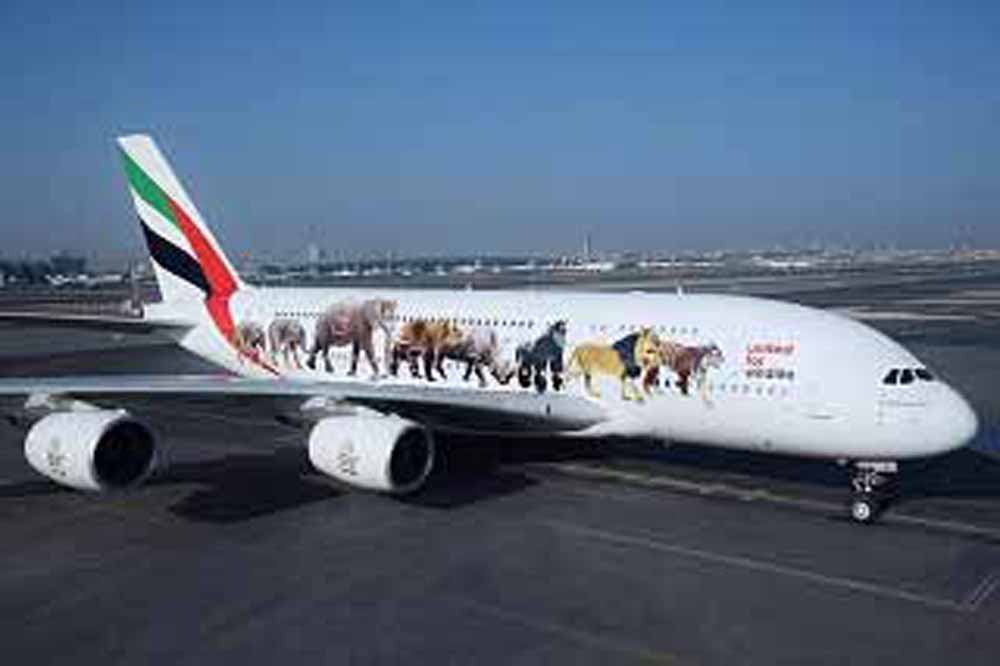Emirates takes fight to the skies to save threatened wildlife
By viji Wednesday, 04 November 2015 11:35 AM

Emirates airlines took the fight against illegal wildlife trade to the skies this week, unveiling two of its A380 jets dressed in livery depicting threatened animals.
4 November 2015
Giant tigers, lions, gorillas, rhinos, bears and elephants covered both sides of the planes’ fuselages. The livery is part of the airline’s support for a global transport industry awareness campaign on illegal wildlife trade.
The campaign is part of Emirates’ partnership with United for Wildlife, seven international conservation groups brought together by the UK’s Duke of Cambridge.
The joint effort has set up a taskforce against the illegal transport of wildlife.
The repercussions of the trade go beyond the threat posed to certain species, said William Hague, chairman of the United for Wildlife Transport Taskforce.
“This is more than just an environmental issue. The illegal wildlife trade is now recognised as a serious and organised transnational crime,” Mr Hague said.
“It drives corruption, is linked to money laundering, and it can damage economic development in many of the world’s poorest countries and communities.”
The transport industry plays a significant role in breaking the supply chain of the animal trade, said Tim Clark, president of Emirates.
“The world is in a global poaching crisis and everyone has to do their part to stop this before it is too late,” Mr Clark said.
Emirates is working with organisations to train and better equip its ground and cargo staff to detect and deal with illegal wildlife products in transit.
Other moves include running wildlife protection stories in its inflight magazines, and giving travellers the option of listening to related podcasts or watching movies as part of their inflight entertainment choices.
The UAE is not a major destination for illegal wildlife and its products such elephant ivory and rhino horn, but as a major transport centre it has an integral role to play in the fight, said Dr Naomi Doak, project director of United for Wildlife.
“The transport industry is unwittingly supporting the movement of illegal wildlife goods, so it is important they become the eyes and ears on the ground,” Dr Doak said.
Through the participation of local companies such as Emirates and Dubai Ports, more awareness of illegal activities would be raised locally and globally.
Dr Doak said the campaign could also tackle illegal trade of exotic animals in the region and across the globe.
“The ownership of luxury pets is not only a UAE problem, but is also an issue all around the world,” she said.
Despite the Transport Taskforce being set up as a temporary body to provide recommendations, Dr Doak said it was great to see companies such as Emirates implementing suggestions.
Awareness is a key aspect in addressing the problem, said Lisa Perry, senior adviser for Emirates Wildlife Society.
“Many travellers transport illegal goods unknowingly and have no idea that illegal wildlife trade is one of the leading threats to wildlife survival, only second to the loss of habitat,” she said.
Dr Doak said the campaign was just one piece of the puzzle.
The next step, linking transport companies with authorities to help in the fight against illegal wildlife trade, will be a little more challenging, she said.
“It’s not going to solve the crisis, but it has the potential to slow down the flow of the trade.”




























Add new comment